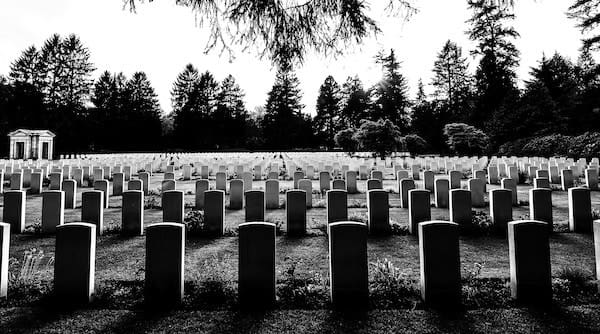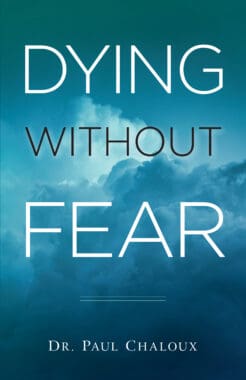The unexpected death of a loved one is the hardest for people to deal with, particularly when the person is in seemingly good health and there was no warning to prepare the survivors. The more involved this person was in your life, the bigger the void that needs to be filled when he is not there to fill it. The instantaneous emergence of these voids makes them harder to fill immediately, leaving you with many potential questions. It will be natural to question why the person was taken from you, to wonder what happens to him now, to worry what or who is going to fill those gaps in your life.
To try to answer these questions generically, God controls the universe and God loves us all. There is a reason every person dies. It is never truly random or meaningless. People who die without warning are spared terminal suffering, but at the same time, they lack its warning. For the diligent and devout, who live in the state of grace, a quick, relatively painless death is a blessing. The survivors, too, can be comforted by the relative lack of suffering in these unexpected deaths, which are most often the result of a heart attack, a stroke, a traffic accident, drowning, or a fall. As discussed in the last chapter, the suicide of a loved one will usually be unexpected by the survivors.
Like John Halligan, the people left behind after an unexpected death may be very anxious to make sense of it and may find some solace advocating for changes that will save others from the same fate. People whose loved ones die in traffic fatalities will sometimes mark the spot with a memorial, which at least for a time will identify the scene as dangerous. Those whose loved ones die of a heart attack or stroke may request donations to the associations that look for cures for these diseases, in lieu of flowers at the funeral, and the most motivated will find a role in their support.
Expect the grief and mourning to be more intense for an unexpected death than for a ninety-year-old man who has been through terminal suffering for five years. There are two factors driving this. The first is that the grieving process for the terminally ill person is divided and spread out over the length of his illness, while for the unexpected death, the grief is focused all on the short period in which it becomes public knowledge. The second factor is that the ninety-year-old had time to live to his fullest potential, while the person who died unexpectedly probably did not and that is to be mourned.
There may be a tendency among some to be angry with the victim for abandoning them or with God for taking their loved one from them. This anger is mostly misplaced in terms of the victim and totally misplaced toward God. With the exception of suicide, the victim did not mean to die. However, if he failed to take precautions in dangerous situations and also failed to take the necessary steps to provide for those dependent on him, then they have a valid complaint. But being angry at the dead person will not change anything unless it is used to help others be aware of the needs of dependents when doing financial planning.
At the same time, being angry with God is also misplaced. God is not vengeful and does nothing out of malice. The fact that a loved one’s death is surprising to you does not mean that God does not love you or the victim. Perhaps the death was not about you at all but was good for the deceased or some onlooker. It could be that your loved one had fulfilled his part in God’s plan and this was the way that God chose to bring the person home. It may be that the person died particularly well, inspiring others to faith. Or maybe the loved one was holding you back in some way that was keep in you from carrying out your role in God’s plan. In any case, there are many plausible reasons that a loving God would call a person home at any time—but not one good reason that God would do it in a vindictive way. If you find yourself angry at God for the unexpected loss of a loved one, consider the ways that this might help you, the deceased, or someone else get to Heaven.
Also have faith that God will attend to your needs, both terrestrial and eternal, if you follow His lead. It is a good thing that you remember the deceased loved one. Love is eternal currency that cannot be lost or stolen, and it is the only thing you can take with you when you die. Your love will continue after the object of that love is dead, and the person can continue to love you even after death. As St. Paul writes to the Corinthians and to all of us, “Love never fails” (1 Cor. 13:8).
I know that it can be hard to fill the gaps left in our lives by the loss of others. If you had a routine that you shared with the deceased, like walking after dinner, continue the practice in memory of them. You do not need one person to backfill all that the deceased did with and for you. You will not find an exact replica, because everyone is unique and has their own strengths and weaknesses. Instead, expand your existing relationships and make new ones to meet your emotional and social needs.
As for your material needs, follow Jesus’ advice from the Sermon on the Mount:
Do not worry and say, “What are we to eat?” or “What are we to drink?” or “What are we to wear?” All these things the pagans seek. Your heavenly Father knows that you need them all. But seek first the kingdom [of God] and his righteousness, and all these things will be given you besides. Do not worry about tomorrow; tomorrow will take care of itself. Sufficient for a day is its own evil. (Matt. 6:31–34)
Depend on God. You will be surprised and happy with where this leads you. He may allow you to struggle a bit at the beginning to test your resolve, but if you follow where He leads you, avoiding what causes you or others to suffer, I am quite confident that you will like what results.
+
This article is adapted from the book Dying Without Fear by Paul Chaloux which is available from Sophia Institute Press.
Art for this post on Unexpected Death: Cover image used with permission; Photo by Davide Ragusa on Unsplash.





